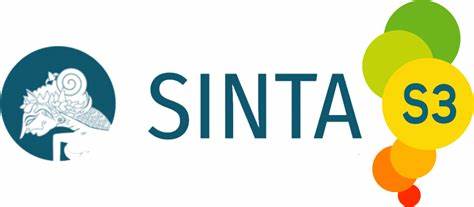DESIGNING COMPUTER-BASED EXERCISES USING WEBLOG, HOT POTATOES SOFTWARE AND SKYPE MESSENGERS IN CREATING IDEAS TO FACILITATE INDEPENDENCE LEARNING OF READING COMPREHENSION
DOI:
https://doi.org/10.22460/eltin.v6i1.p11-21Abstract
The design-based research methodology explicates how design not only allowed more effective student representation and sharing of the different levels of knowledge required for abstraction to occur, but also enabled better teacher assessment and, hence, remediation also provides detailed guidance on creating interactive content (from the application of learning strategies and media to courseware development). On the basis of the emerging findings of the study a set of principles for designing web-conferencing (or other online) environments to support creative design learning is proposed. This mainly addresses trainers and instructional designers who aim to create learning projects that really match learners’ needs, was considered appropriate and suitable for the students to develop their reading comprehension. This interactive and interesting design would increase the students’ motivation to learn reading comprehension in fun environment. It is expected that they could change their habit of the learning by accessing the exercises regularly as the media
Keywords: Weblog, Hot Potatoes Sofware, Skype Messengers, and Reading Comprehension
References
Cohen, L Manion, L & Marrison K. (2000) and NÃkleva, & López, 2012 “Research Methods in Education (5thEdition)†London: Routladge Falmer
Dudeney, Gavin & Hockly, Nicky. 2007. How to Teach English with Technology. England: Pearson Longman.
Duffy, Peter and Bruns, Axel. 2006. The Use of Blogs, Wikis and RSS in Education: A Conversation of Possibilities. In Proceedings Online Learning and Teaching Conference 2006, pages pp. 31-38, Brisbane.http://eprints.qut.edu.au
Harmer, Jeremy. 2008. How to Teach English: An Introduction to the Practice of English Language Teaching. England: Pearson Longman
Hesmondhalgh. 2011. Blogs in Education. (n.d) Retrieved April 4, 2006, from http://awd.cl.uh.edu/blog/
Hot Potatoes Version 6. Canada: Half-Baked Software, Inc. Retrived December 3, 2010, from http://hotpot.uvic.ca/hotpot6_help.pdf
Sari, Gabriella Sandya Puspita. 2012. Designing Computer-Based Exercises Using Hot Potatoes Software to Facilitate Independent Learning of Tenses for The First Grade Students of SMK Sanjaya PAKEM. English Language Education Faculty of Teachers Training & Education. Sanata Dharma University. Yogyakarta.
Langer and Levy, M. 2007. Computer-Assisted Language Learning: Context and Conceptualization. New York: Oxford University Press.
Martindale, Trey & Wiley, A.D. 2004. An Introduction to Teaching with Weblogs. http://teachable.org/papers/2004_techtrends_bloglinks.htm
O’Malley, M.J. & Pierce, V.L. 2005. Authentic Assessment or English Language Learners: Practical Approaches for Teachers. Addison- Wesley Publishing.
Reeves, Hedberg and Tim Green's. 2009. “www.mastersinesl.org/blog/instructional- technology- tools-in-the-esl-classroom/â€.





